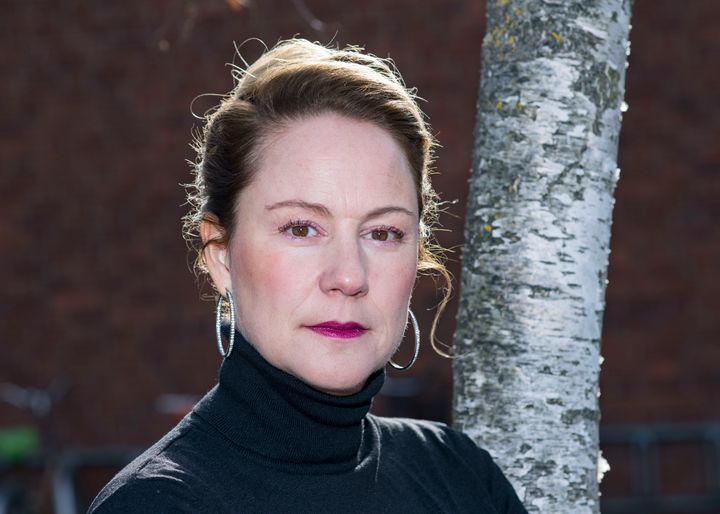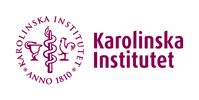Self-harm linked to violence towards others
[PRESS RELEASE 2017-04-05] There is a link between self-harm and the risk of violent criminality, according to a Swedish registry study carried out by researchers at Karolinska Institutet and published in the scientific journal JAMA Psychiatry.

Deliberate self-harm, such as cutting, burning or overdosing on drugs to escape distressing emotions or attempt suicide is a serious and common behaviour.
It has long been suspected that individuals who self-harm may also be prone to aggressive behaviours towards others, but the studies that have been conducted thus far have not been able to give conclusive answers. Researchers at Karolinska Institutet have therefore used Swedish registries to investigate the link between deliberate self-harm and violent crime convictions. The registries give unique opportunities to study this correlation since they cover the entire population.
The study included all Swedish citizens born between 1982 and 1998 and followed them from age 15 (1,850,525 individuals in total). During the study period 55,185 received self-harm associated clinical care, 66,561 were convicted of a violent crime, and 8,155 were both exposed to self-harm and convicted of a violent crime. Individuals who had at some time received clinical care for self-harm ran a five-fold risk of being convicted for a violent crime compared with those who had never received care for self-harm.
”A susceptibility to self-harm seems to increase the risk of violent expression, but we found no support for the hypothesis that self-harm causes violence crime,” says Hanna Sahlin, doctoral student at the Department of Clinical Neuroscience at Karolinska Institutet. ”When we reversed the analysis and examined the risk of self-harm in individuals convicted of a violent crime, we found a similar association. Taken together, this suggests that self-harm behaviour and violent criminality is a manifestation of a common underlying vulnerability.”
Almost as many men as women received clinical care for self-harm during the study period. The risk of violent crime conviction was particularly high for self-harming women with comorbid substance abuse, with a seven times increased risk for violent crime conviction, compared to women who had never received clinical care for self-harm.
Even after controlling for relevant confounders, such as psychiatric co-morbidity and socioeconomic factors, self-harm was still associated with a doubled risk of violent crime conviction, a finding that remained when men and women were analysed separately.
”We need to ask about aggressive behaviour towards others when we assess and treat self-harming individuals, but we also need to ask about self-harm when we assess and treat aggressive individuals,” says Ms Sahlin.
The study was financed by the Swedish Research Council, the Marcus and Amalia Wallenberg Memorial Foundation, Forte, Stockholm County Council and Karolinska Institutet.
Publication: 'Association Between Deliberate Self-harm and Violent Criminality', Hanna Sahlin, Ralf Kuja-Halkola, Johan Bjureberg, Paul Lichtenstein, Yasmina Molero, Mina Rydell, Erik Hedman, Bo Runeson, Jussi Jokinen, Brjánn Ljótsson, Clara Hellner. JAMA Psychiatry, online 5 April 2017, doi:10.1001/jamapsychiatry.2017.0338
Contacts
For more information, please contact:
Hanna Sahlin, doctoral student, licensed psychologist and psychotherapist, specialist in clinical psychology
Department of Clinical Neuroscience, Karolinska Institutet
Phone: +46 (0)70 600 59 20
E-mail: Hanna.Sahlin@ki.se
Clara Hellner, MD, professor, licensed specialist in child and adolescent psychiatry
Director of the Centre for Psychiatry Research
Department of Clinical Neuroscience, Karolinska Institutet
Phone: +46 (0)70 562 99 03
E-mail: Clara.Hellner@ki.se
Images

Karolinska Institutet is one of the world’s leading medical universities. Its vision is to significantly contribute to the improvement of human health. Karolinska Institutet accounts for the single largest share of all academic medical research conducted in Sweden and offers the country’s broadest range of education in medicine and health sciences. The Nobel Assembly at Karolinska Institutet selects the Nobel laureates in Physiology or Medicine.
Subscribe to releases from Karolinska Institutet - English
Subscribe to all the latest releases from Karolinska Institutet - English by registering your e-mail address below. You can unsubscribe at any time.
Latest releases from Karolinska Institutet - English
Fluoride in drinking water is associated with impaired childhood cognition7.3.2025 15:30:00 CET | Pressmeddelande
Elevated concentrations of fluoride can occur in well water, and in some countries, it is added to drinking water to counteract caries in the population. A study from Karolinska Institutet in Sweden now supports a few previous studies indicating that exposure to fluoride during the fetal stage or early childhood may impair cognition in children. The study is published in the journal Environmental Health Perspectives.
Children with ARFID face increased risk of disease17.2.2025 17:00:00 CET | Pressmeddelande
Children with avoidant restrictive food intake disorder (ARFID) have an elevated risk of developing psychiatric and physical conditions, a new study from Karolinska Institutet published in JAMA Pediatrics reports. The study highlights the importance of early identification to improve care of these children.
Preterm babies receive insufficient pain management27.1.2025 15:29:17 CET | Pressmeddelande
A large proportion of babies born very early need intensive care, which can be painful. But the healthcare system fails to provide pain relief to the full extent. This is shown by the largest survey to date of pain in neonatal care, now published in the journal Pain.
New study paves way for immunotherapies tailored for childhood cancers20.1.2025 17:00:00 CET | Pressmeddelande
Researchers at Karolinska Institutet and the Astrid Lindgren Children’s Hospital in Sweden have determined how children’s immune systems react to different kinds of cancer depending on their age. The study, which is published in the journal Cell, reveals significant differences between the immune response of children and adults, and has the potential to lead to new tailored treatments for children with cancer.
AI can improve ovarian cancer diagnoses2.1.2025 11:00:00 CET | Pressmeddelande
A new international study led by researchers at Karolinska Institutet in Sweden shows that AI-based models can outperform human experts at identifying ovarian cancer in ultrasound images. The study is published in Nature Medicine.
In our pressroom you can read all our latest releases, find our press contacts, images, documents and other relevant information about us.
Visit our pressroom